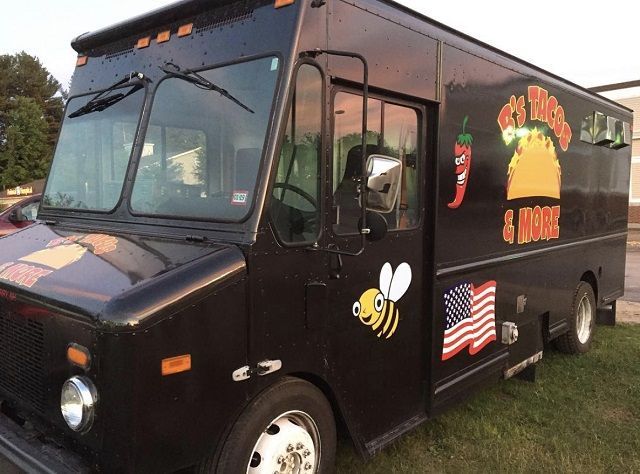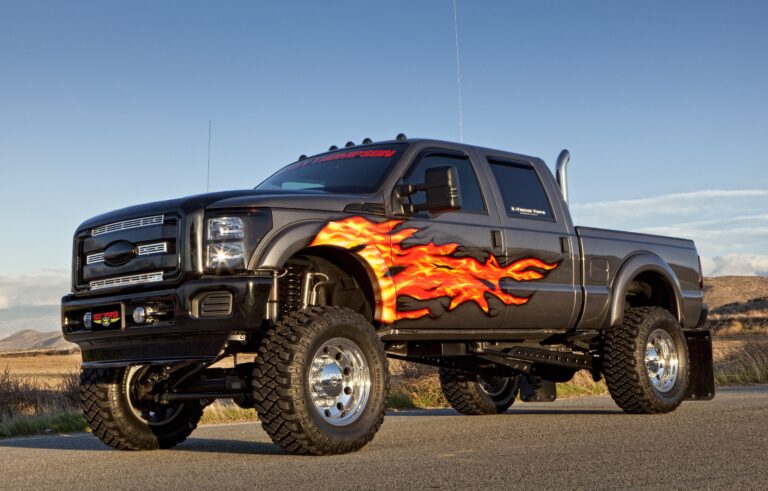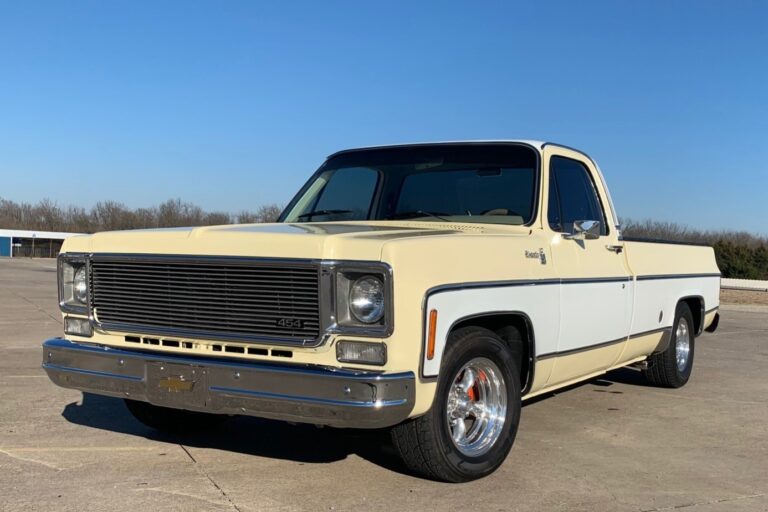Sleeper Trucks For Sale In Georgia: Your Comprehensive Guide to Finding the Perfect Rig
Sleeper Trucks For Sale In Georgia: Your Comprehensive Guide to Finding the Perfect Rig cars.truckstrend.com
Georgia, often referred to as the "Empire State of the South," stands as a pivotal hub for commerce and logistics in the United States. Its strategic location, crisscrossed by major interstates like I-75, I-85, I-95, and I-20, makes it an indispensable transit point for goods moving across the nation. In this bustling landscape, the sleeper truck emerges as a quintessential workhorse, enabling long-haul drivers to transport goods efficiently while ensuring their comfort and compliance with rest regulations.
A sleeper truck is essentially a heavy-duty commercial vehicle equipped with a dedicated living compartment, or "sleeper berth," directly behind the driver’s cabin. This integrated living space allows drivers to rest, sleep, and often prepare meals on the road, eliminating the need for costly hotel stays and maximizing their time behind the wheel. For independent owner-operators, small trucking companies, or even larger fleets expanding their operations, acquiring the right sleeper truck in Georgia is not just a purchase; it’s an investment in productivity, driver retention, and overall business success. This comprehensive guide will navigate you through the intricate process of finding, evaluating, and purchasing a sleeper truck in the Georgian market.
Sleeper Trucks For Sale In Georgia: Your Comprehensive Guide to Finding the Perfect Rig
The Georgia Advantage: Why Seek Sleeper Trucks Here?
Georgia’s robust economy and central role in the national supply chain create a dynamic market for commercial vehicles, including sleeper trucks. Here’s why the state is an excellent place to begin your search:
- Strategic Logistics Hub: With major ports like Savannah and Brunswick, and a network of distribution centers for companies like Amazon, UPS, and Walmart, Georgia sees a constant flow of goods. This high volume of freight translates into a steady demand for trucks, leading to a healthy supply of both new and used vehicles.
- Diverse Inventory: The presence of numerous authorized dealerships for major brands (Freightliner, Peterbilt, Kenworth, Volvo, Mack, International) alongside a multitude of independent used truck dealers ensures a wide variety of models, configurations, and price points.
- Competitive Pricing: A large, active market often fosters competition among sellers, which can translate into more favorable pricing for buyers.
- Access to Services: Georgia boasts an extensive infrastructure of truck stops, repair shops, and specialized service centers, making post-purchase maintenance and support readily accessible.
- Thriving Trucking Community: A large community of truckers and trucking businesses means valuable networking opportunities and access to local insights on vehicle performance and market trends.

Understanding Sleeper Truck Types and Configurations
Sleeper trucks come in various forms, each offering distinct advantages based on a driver’s specific needs and preferences. Understanding these configurations is crucial for making an informed decision:
- Conventional Sleepers (Long-Nose Trucks): These are the most common type, characterized by their engine located in front of the cab. They offer a comfortable ride, easier engine access for maintenance, and typically feature spacious sleeper berths.

- Integrated Sleepers: Built as a seamless part of the truck’s original design, offering superior insulation and structural integrity.
- Custom/Aftermarket Sleepers: Some day cabs are fitted with custom sleeper units, which can vary widely in quality and amenities.
- Cab-Over Engine (COE) Sleepers: While less prevalent in North America today, some older models are still available. In COEs, the cab sits directly over the engine, allowing for a shorter overall length, which can be advantageous in tight urban environments or for maximizing trailer length within legal limits. Their sleeper compartments can be more compact.
- Sleeper Sizes: Sleeper berths range significantly in size, typically measured by their interior length:
- Mid-Roof (36-60 inches): More compact, suitable for shorter long hauls or drivers who prefer a smaller living space.
- Flat-Top (48-60 inches): Similar to mid-roof but without the raised roof section, sometimes used for specialized hauling.
- Raised Roof (60-80+ inches): The most popular for long-haul drivers, offering stand-up room, larger beds, and space for amenities like refrigerators, microwaves, and entertainment systems.
- Custom/Extended Sleepers (90+ inches): These are essentially mobile apartments, often featuring full bathrooms, kitchens, and multiple bunk beds, ideal for team drivers or those who spend extended periods on the road.

When evaluating, consider the amenities: refrigerators, microwaves, TV mounts, ample storage, desks, climate control, and even integrated power inverters are common features that significantly impact driver comfort and well-being.
Key Considerations When Purchasing a Sleeper Truck in Georgia
The decision to purchase a sleeper truck involves a substantial investment. Careful consideration of several factors will ensure you make a wise choice that aligns with your operational needs and budget.
- New vs. Used:
- New Trucks: Offer the latest technology, better fuel efficiency (often), full warranties, and no wear-and-tear history. However, they come with a higher upfront cost and rapid depreciation.
- Used Trucks: Significantly more affordable, allowing for quicker ROI. The depreciation curve is less steep. The trade-off is potential wear, unknown maintenance history (unless well-documented), and no factory warranty (though some dealers offer limited warranties). For many owner-operators, a well-maintained used truck is the most sensible option.
- Budget and Financing: Determine your maximum budget, including the down payment, potential loan interest, insurance, and initial maintenance. Commercial truck financing differs from car loans, often requiring a larger down payment (10-25%) and a strong credit history. Many dealerships offer in-house financing, or you can explore options with banks and specialized commercial lenders in Georgia.
- Engine and Drivetrain: The heart of your truck. Research engine manufacturers (Cummins, Detroit Diesel, PACCAR, Volvo, Mack, International) and their reliability, fuel efficiency, and available horsepower/torque. Consider the transmission type: manual for experienced drivers seeking control, or automated manual transmissions (AMT) for ease of driving and potential fuel savings.
- Mileage and Hours: For used trucks, these are critical indicators of wear. High mileage (over 700,000 miles) can mean a lower price but potentially higher maintenance needs. Engine hours are also important, especially for trucks that idle frequently. Look for a balance that fits your expected lifespan for the truck.
- Maintenance History: Absolutely crucial for used trucks. Request detailed service records, including oil changes, major repairs, and component replacements. A well-documented history indicates responsible ownership and can save you from costly surprises.
- Sleeper Amenities and Condition: Evaluate the sleeper’s cleanliness, functionality of appliances, condition of upholstery, and overall comfort. A comfortable sleeper translates to a well-rested, productive driver.
- Gross Vehicle Weight Rating (GVWR) / Gross Combination Weight Rating (GCWR): Ensure the truck’s specifications align with the weight of the loads you intend to haul. This affects legal compliance and performance.
- Emissions Standards: Be aware of the EPA emissions standards (e.g., EPA 2007, 2010, 2013, 2017) that the truck complies with. Newer trucks have more sophisticated (and sometimes more complex/costly) emissions systems like Diesel Particulate Filters (DPF) and Selective Catalytic Reduction (SCR) systems requiring Diesel Exhaust Fluid (DEF).
Navigating the Market: Where to Find Sleeper Trucks in Georgia
Georgia offers a variety of avenues for sourcing sleeper trucks:
- Authorized Dealerships (New & Certified Used):
- Pros: New trucks with warranties, certified used trucks often undergo rigorous inspections, access to financing, parts, and service departments.
- Cons: Higher prices, less room for negotiation on new vehicles.
- Examples in GA: Freightliner of Atlanta, Peach State Truck Centers (Freightliner, Western Star), Peterbilt of Atlanta, Kenworth of Georgia, Volvo Trucks of Atlanta, Tri-State Truck Center (International, Idealease).
- Independent Used Truck Dealers:
- Pros: Wider selection of makes and models, potentially more competitive pricing, more negotiation flexibility.
- Cons: Quality can vary, less standardized inspection processes, warranties may be limited or non-existent. Research their reputation thoroughly.
- Online Marketplaces:
- National Platforms: TruckPaper.com, CommercialTruckTrader.com, MyLittleSalesman.com are excellent resources for searching nationwide, often with filters for location (Georgia).
- General Classifieds: Craigslist, Facebook Marketplace, and local online classifieds can sometimes yield direct-from-owner sales, potentially offering good deals but requiring extra diligence.
- Auctions:
- Types: Public auctions (e.g., Ritchie Bros. Auctioneers, IronPlanet) and dealer-only auctions.
- Pros: Potential for significant savings.
- Cons: "As-is, where-is" sales, limited inspection time, high risk for inexperienced buyers, often requires quick decisions and cash payment.
- Direct from Owners/Fleets: Sometimes, smaller fleets or individual owner-operators will sell their trucks directly. This can be found via online platforms or word-of-mouth. It allows for direct communication about the truck’s history but requires a comprehensive pre-purchase inspection.
The Buying Process: Practical Steps for Georgia Buyers
- Define Your Needs: Before you start looking, clearly outline your operational requirements:
- What type of freight will you haul? (Affects engine size, axle configuration)
- What are your typical route lengths? (Affects sleeper size, fuel tank capacity)
- What’s your maximum budget?
- Do you prefer a specific brand or engine?
- Research and Shortlist: Use online platforms to identify potential trucks. Read reviews, compare specifications, and create a shortlist of vehicles that meet your criteria and are located conveniently in Georgia.
- Initial Contact and Information Gathering: Call sellers to confirm availability, ask specific questions about the truck’s history, mileage, maintenance records, and any known issues. Request additional photos or videos.
- On-Site Inspection (Crucial!):
- Exterior: Check for rust, frame damage, tire wear, fluid leaks.
- Interior: Assess cab and sleeper condition, electronics, HVAC, appliances.
- Engine Compartment: Look for leaks, frayed belts, corrosion.
- Test Drive: Listen for unusual noises, check braking, steering, transmission shifting, and overall performance.
- Professional Pre-Purchase Inspection (PPI): For any used truck, always invest in a PPI by an independent, certified heavy-duty mechanic. They can identify hidden problems that you might miss, such as engine compression issues, transmission faults, or frame damage. This small investment can save you thousands in future repairs.
- Negotiation: Be prepared to negotiate the price. Research comparable sales to understand market value. Don’t be afraid to walk away if the deal isn’t right.
- Financing and Insurance: Secure your financing pre-approval. Obtain quotes for commercial truck insurance, which is mandatory and can be a significant ongoing cost.
- Paperwork and Registration:
- Bill of Sale: Ensure it accurately reflects the agreed-upon price and vehicle details.
- Title Transfer: The seller must provide a clear title. In Georgia, you will need to register the truck with the Department of Driver Services (DDS) or a County Tag Office.
- IFTA/IRP: If you plan to operate interstate, you’ll need to register for the International Fuel Tax Agreement (IFTA) and International Registration Plan (IRP) through the Georgia Department of Revenue.
- DOT Regulations: Ensure the truck meets all Federal Motor Carrier Safety Administration (FMCSA) and Georgia Department of Public Safety (DPS) regulations.
Representative Sleeper Truck Prices in Georgia (Example Data)
Prices for sleeper trucks in Georgia, as anywhere, vary significantly based on make, model, year, mileage, engine type, transmission, sleeper size, condition, and included amenities. This table provides example price ranges for common sleeper truck configurations you might find in the Georgian market. These are illustrative and not real-time market data.
| Make/Model | Year | Engine Type | Transmission | Sleeper Size (inches) | Mileage (approx.) | Condition | Estimated Price Range (USD) |
|---|---|---|---|---|---|---|---|
| Freightliner Cascadia | 2018 | Detroit DD15 | DT12 (AMT) | 72" Raised Roof | 500,000 – 650,000 | Good Used | $45,000 – $65,000 |
| Peterbilt 579 | 2019 | PACCAR MX-13 | Eaton Fuller 10-Spd | 80" Platinum | 400,000 – 550,000 | Very Good Used | $60,000 – $85,000 |
| Kenworth T680 | 2017 | Cummins X15 | Eaton Fuller 13-Spd | 76" Aerocab | 600,000 – 750,000 | Fair Used | $38,000 – $55,000 |
| Volvo VNL 760 | 2020 | Volvo D13 | I-Shift (AMT) | 70" High-Roof | 350,000 – 500,000 | Excellent Used | $70,000 – $95,000 |
| Mack Anthem | 2019 | Mack MP8 | mDRIVE (AMT) | 70" Stand-Up | 450,000 – 600,000 | Good Used | $55,000 – $75,000 |
| International LT625 | 2018 | Cummins X15 | Eaton Fuller 10-Spd | 73" Sky-Rise | 550,000 – 700,000 | Good Used | $40,000 – $60,000 |
| Older Model/High Mileage | 2010-2015 | Various | Various | 60-72" | 800,000+ | Functional | $20,000 – $35,000 |
Note: These prices are illustrative and subject to market fluctuations, individual truck condition, seller, and negotiation.
Frequently Asked Questions (FAQ) About Sleeper Trucks For Sale In Georgia
Q1: What is considered good mileage for a used sleeper truck?
A1: For a used sleeper truck, mileage between 400,000 to 600,000 miles is often considered a good balance between price and remaining lifespan, assuming proper maintenance. Trucks can last well over a million miles with diligent care.
Q2: Do I need a special license to drive a sleeper truck in Georgia?
A2: Yes, you will need a Class A Commercial Driver’s License (CDL) to operate a sleeper truck (tractor-trailer combination) in Georgia, as it typically exceeds 26,001 pounds Gross Vehicle Weight Rating (GVWR) or Gross Combination Weight Rating (GCWR).
Q3: Can I finance a used sleeper truck in Georgia?
A3: Absolutely. Many commercial lenders, banks, and dealership finance departments in Georgia specialize in used truck financing. Be prepared for a higher down payment and stricter credit requirements than for personal vehicle loans.
Q4: What are the most popular sleeper truck brands found in Georgia?
A4: Freightliner, Peterbilt, Kenworth, Volvo, Mack, and International are consistently the most popular brands due to their reliability, extensive dealer networks, and availability of parts and service.
Q5: What should I look for during a pre-purchase inspection of a used sleeper truck?
A5: A thorough PPI should cover the engine (oil analysis, compression test), transmission, differential, frame integrity, suspension, brakes, tires, electrical system, and all auxiliary components in the sleeper. Look for signs of major accidents, rust, fluid leaks, or neglected maintenance.
Q6: How much does commercial truck insurance cost in Georgia?
A6: Insurance costs vary widely based on the truck’s value, your driving record, type of operation, and coverage limits. Expect to pay anywhere from $8,000 to $18,000+ annually for full coverage on a long-haul sleeper truck.
Q7: Are there any specific Georgia regulations for sleeper trucks I should be aware of?
A7: Beyond federal FMCSA regulations (Hours of Service, inspections), Georgia state laws align closely. Ensure your truck passes annual DOT inspections, and you adhere to state weight limits and registration requirements (IFTA, IRP if operating interstate).
Conclusion
Acquiring a sleeper truck in Georgia is a strategic move for any individual or business looking to thrive in the competitive world of long-haul trucking. The state’s robust logistics infrastructure, diverse inventory, and competitive market make it an ideal location for your purchase. By understanding the types of trucks available, diligently considering key factors like new vs. used, engine specifications, and maintenance history, and following a structured buying process including crucial pre-purchase inspections, you can navigate the market with confidence.
Remember, a sleeper truck is more than just a vehicle; it’s your home away from home, your office, and a significant investment in your livelihood. Take the time to research, inspect, and negotiate wisely. With the right sleeper truck, you’ll be well-equipped to conquer the open road, maximize your earning potential, and ensure comfort on your long journeys across Georgia and beyond.





